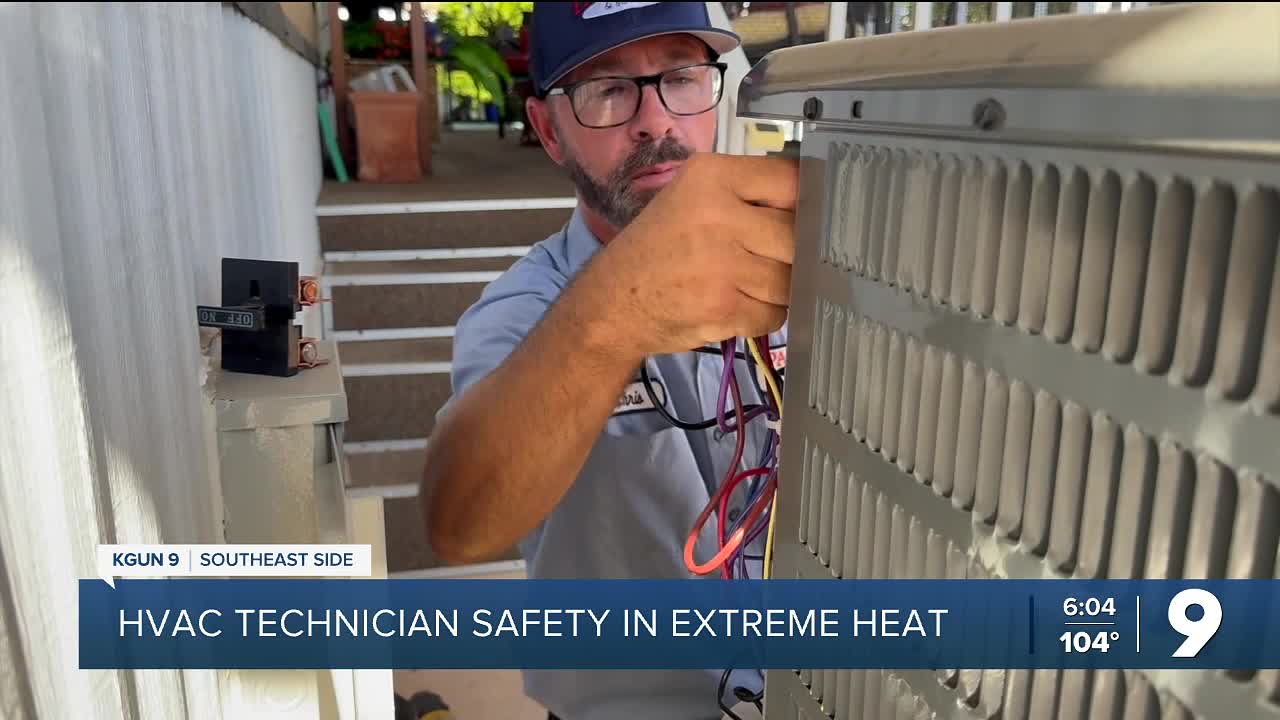TUCSON, Ariz. (KGUN) — When temperatures soar into the triple digits, most of us stay indoors with cool AC. For HVAC technicians, the job often means enduring the heat outside and in attics that can feel like ovens. One Parker & Sons HVAC technician shares how he keeps safe during extreme heat conditions.
Arizona law does not have formal heat standards for workplaces like other states.
Inside some attics, the temperature can be above 130 degrees, and that’s where HVAC workers like Chris Jones can spend hours on a call.
“Before I head out, I make sure I have a sufficient amount of water, that's obviously number one," Jones said.
Jones works for Parker & Sons and has been an HVAC technician for 18 years. He says his longest service call took three and a half hours.
“It was up on a roof. It was 110-112 outside. Up on that roof, it was a flat top, it was probably 120-130 up there," Jones described.
I asked Jones what he takes with him, besides water, when going out on a call.
“Cool down, towels, Gatorade, an umbrella. Just anything to keep that heat off of me," said Jones.
Jones says he experienced an intense situation years ago when working in an attic that reached about 160 degrees.
“I sat in my truck and I could not stop sweating. I could not gain my mental thought, and I literally sat there for 30-45 minutes, thinking I didn't know if I was going to be able to finish the job or not because of how hot I got," said Jones.
He says the biggest mistake some HVAC technicians make is not realizing how hot their bodies are getting.
“Not realizing their bodies are showing signs [of heat exhaustion], we need to make a change. You need to get cooled off and they think, oh, I just got a little bit more on this job. I just got a little bit more on this job," Jones said.
Jones says people working in dangerous heat should always listen to their bodies.
“You just have to take breaks. Obviously, winter time is different. You can work longer and harder in the wintertime, but you just have to take breaks. That's first and foremost," said Jones.
——
Jacqueline Aguilar is a multimedia journalist at KGUN 9. Born and raised in Yuma, AZ., she is no stranger to the unforgiving Arizona heat. Now this U of A wildcat is excited to be back in Tucson and is looking forward to involving herself in the community. Share your story ideas with Jacqueline by emailing jacqueline.aguilar@kgun9.com or connecting on Facebook, Instagram or X.







